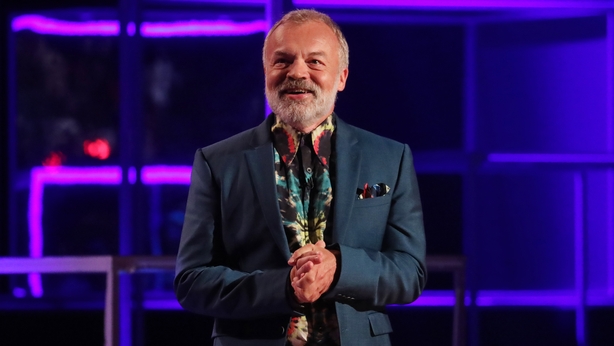Former RTÉ broadcaster Mike Murphy has described Gay Byrne as a "once-off".
Mr Byrne died yesterday aged 85 following a long illness.
His funeral will take place on Friday at 12pm at the Pro-Cathedral in Dublin.
Books of Condolence have been opened in the Mansion House in Dublin and at City Hall in Galway.
Speaking on RTE's Morning Ireland, Mr Murphy said he and Gay were great pals and he would really miss him, adding that Gay once described him as "an irritating younger brother".
He recalled first seeing Gay walking down a corridor and asking someone, "who's that" and they replied "that's Gay Byrne and he's going places".
He said that Gay was on a single pathway and that his career was "literally his life".
"He was a once-off, there is no doubt about it. He would never have stopped.
"He just wanted to continue and continue until he left the Late Late Show, in whatever year it was, and I remember a few years later he said to me, do you know something, I could have kept going for another few years.
"He simply loved it."
In the Dáil this afternoon the Taoiseach offered his condolences to the family of Gay.
He said that Mr Byrne had a central place in Irish homes for decades and "the story of his remarkable contribution to Irish life is a story of how we changed and evolved for the better as a nation over the past 60 years."
Dáil tributes for #GayByrne | https://t.co/XlHkmUUCtd https://t.co/hAhgqtoFjY
— RTÉ News (@rtenews) November 5, 2019
Read More:
- Veteran RTÉ broadcaster Gay Byrne dies aged 85
- 'The audience knew they were in the hands of a master'
- Gay Byrne's finest moments on The Late Late Show
Mayor of Galway, Mike Cubbard, opens Book of Condolence for Gay Byrne this morning. Locals can sign at City Hall until Friday evening. pic.twitter.com/ihCl8OgqW7
— Pat McGrath (@patmcgrath) November 5, 2019
A former Late Late Show production assistant described Mr Byrne's achievements as "enormous" and "extraordinary".
Colette Kavanagh, the woman behind the catchphrase 'roll it there, Colette', said there was a pioneering sense in RTÉ when she went to work there in 1963 and it was a very exciting time when she went to work on the Late Late Show.
She said she never appreciated how important the impact of the show would be.
The Late Late Show first aired in 1962 and has gone on on to become one of the world's longest running chat shows.
It gave rise to some of the most memorable moments in Irish broadcasting history, many of them taking place with Gay Byrne in the presenter's chair.
Speaking from her home in Santa Barbara, Ms Kavanagh said that looking back at Ireland at the time, it was extraordinary how the country had progressed.
She said she really believed the Late Late Show and Gay Byrne had a lot to do with that.
Ms Kavanagh said taboos were gently brought forward and opened up on the Late Late Show and everyone looked forward to the show each week.
She described Gay as a very "light, happy, pleasant" person to work with.
She also said it was amazing how the phrase 'roll it there, Colette' had spread.
She said there was a bar in Santa Barbara with a big framed picture of Gay Byrne on the wall, with "roll it there, Colette", written on the picture.
Actor and TV presenter Graham Norton said Mr Byrne was a huge feature in his life growing up and his own appearance on the Late Late Show felt like he had "made it".

Speaking on RTÉ's The Ryan Tubridy Show, he said: "You'd have to be some sort of quack, or in a cult with no television for him not to be part of your life.
"Isn't it extraordinary that even then, when we had nothing to compare him to, we seemed to understand how good he was. His quality shone through even though as an audience, we were clueless, because he was the only thing there was."
The chat show host said he wishes he was in Ireland at the moment, because while people in the UK knew of Gay Byrne, they "don't get it" in the same way.
"How lucky are we that Gay found us? He could have been doing something else, he could have been doing lots of other things.
"He found television so early and had this kind of weird instinct and understood the medium completely. Those people are so rare. There was no sense of him being a 'presenter', he just was, he was just Gay Byrne on the television."

